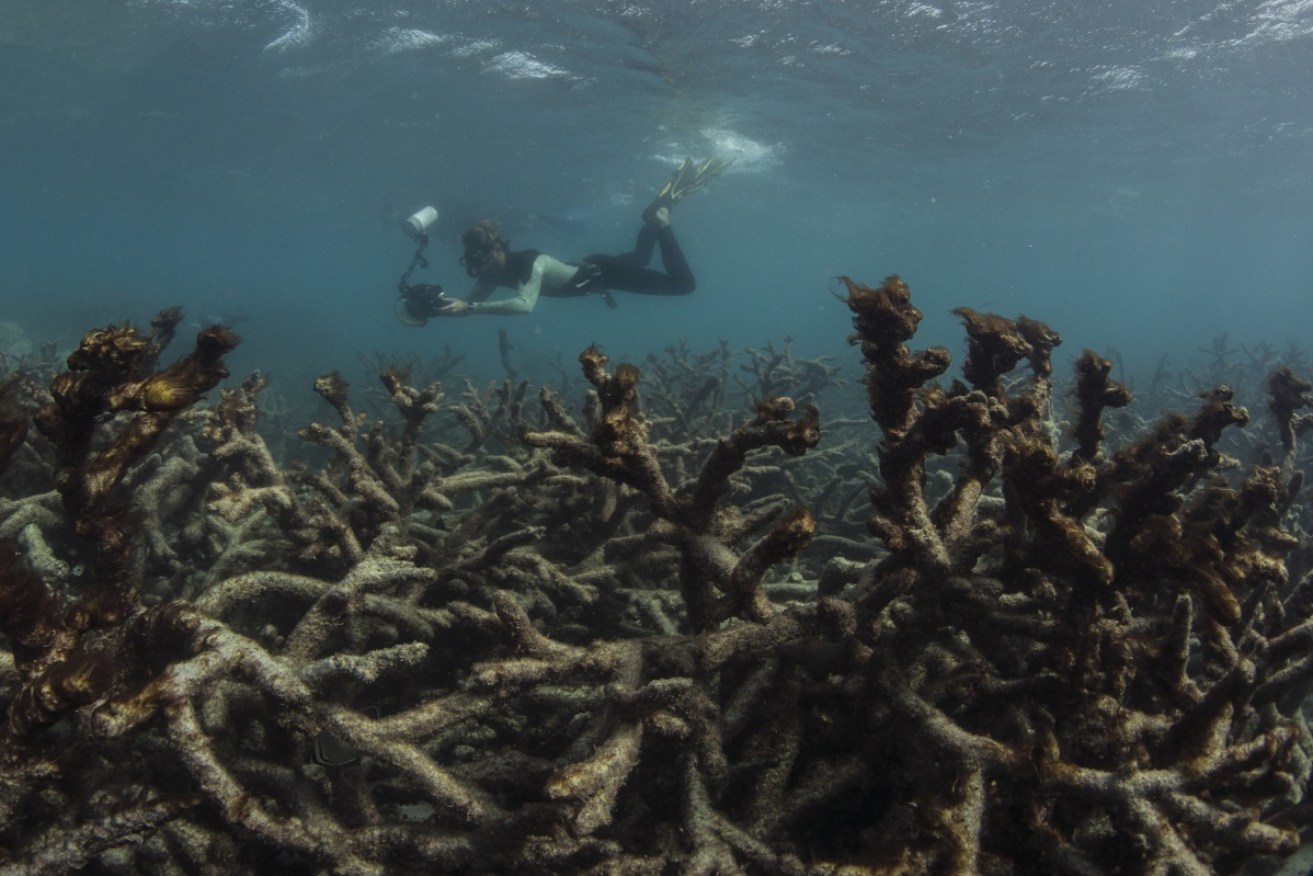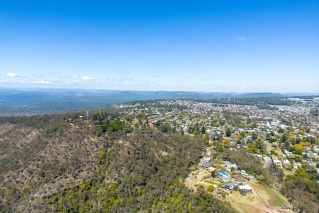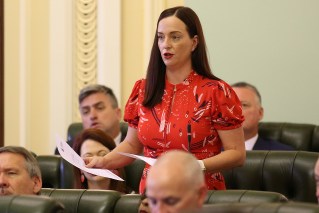Rapid increase in coral bleaching frequency on the Great Barrier Reef


Coral bleaching hit Lizard Island hard as water temperatures rise. Photo: AAP
Coral on the Great Barrier Reef could be killed off every two years if current pollution rates continue, the Climate Council has warned.
A devastating report released by the council on Thursday said coral bleaching events – caused by marine heatwaves – were once separated by 27 years.
“In the 1980s, we would see a 27-year gap on average in between bleaching events around the world. Now, they’re hitting every six years on average,” climate councillor and ecologist Lesley Hughes said.
The council estimated bleaching could occur every two years by 2034 if current greenhouse gas pollution continues.
“This is not sustainable because repeated bleaching events will continuously set back recovery,” the report said.
Acting CEO Martin Rice said the federal and Queensland governments had so far failed to tackle the climate change challenge.
“Doing anything other than urgently and dramatically slashing our nation’s rising greenhouse gas pollution levels will essentially sign the death certificate for the reef as we know it today,” Dr Rice said.
The report said global average temperature rises needed to be limited to no more than 1.5C above pre-industrial levels.
“Unless deep cuts in greenhouse gas emissions are made as a matter of urgency … the reef stands little chance no matter what measures are taken to enhance its resilience.
“A 2C rise in average global temperature will almost certainly mean the collapse of warm-water tropical reefs around the world.”
Governments pledged to stop global warming at between 1.5 and 2 degrees Celsius in the 2015 Paris Agreement.
Rogue backbencher and former prime minister Tony Abbott has spent the week calling for Australia to pull out of the agreement.
Australia committed to work towards a 26 to 28 per cent reduction on 2005 level emissions.
The agreement was signed under his leadership.
“Absent America, my government would not have signed up to the Paris treaty, certainly not with the current targets,” he said in a speech to the Australian Environment Foundation on Tuesday night.
Deputy leader Julie Bishop, who was also Mr Abbott’s deputy, said Australia intended to be accountable for the targets, which were a commitment and not an aspiration.
“Australia plays by the rules. If we sign an agreement, we stick to the agreement.”
She said the targets were agreed by the prime minister, the cabinet and the party room.
The Smart Energy Council chief executive John Grimes on Wednesday said Mr Abbott’s comments were “wildly disconcerting”.
Recent mass bleaching events
The 2016 mass bleaching event is estimated to have killed coral in an “unprecedented” one-third of the reef.
That event was at least 175 times more likely to occur due to climate change, the report said.
Three-quarters of the deaths were in the northern end of the reef, where 93 per cent of reefs between Port Douglas and the Torres Strait were affected.
Some coral species suffered “devastating die-offs” due to thermal stress during the heatwave.
The Climate Council said the bleaching was “potentially irreversible”, with a low likelihood of the reef ever fully recovering.
It led to a decline in fish diversity, with a 40 per cent decrease in juvenile fish settling at Lizard Island.
A bleaching event less than 12 months later focused on the central reefs.
Average coral cover in the northern section is now at its lowest point on record, and coral cover in the central section declined from 22 per cent in 2016 to 14 per cent in 2018.
The council cited the 2017 Deloitte Access Economics report, which said the reef contributed an estimated $6.4 billion a year to the Australian economy.
It found the overall economic, social and iconic value was about $56 billion.

What is coral bleaching? Photo: Climate Council
-with AAP








